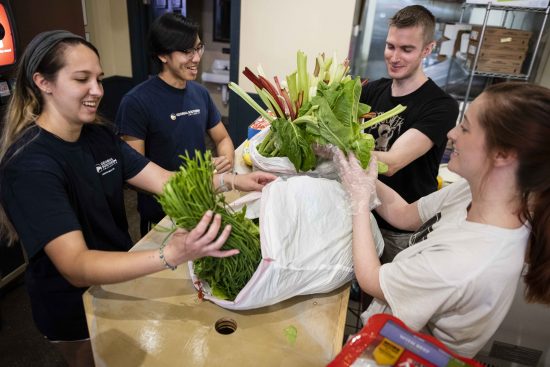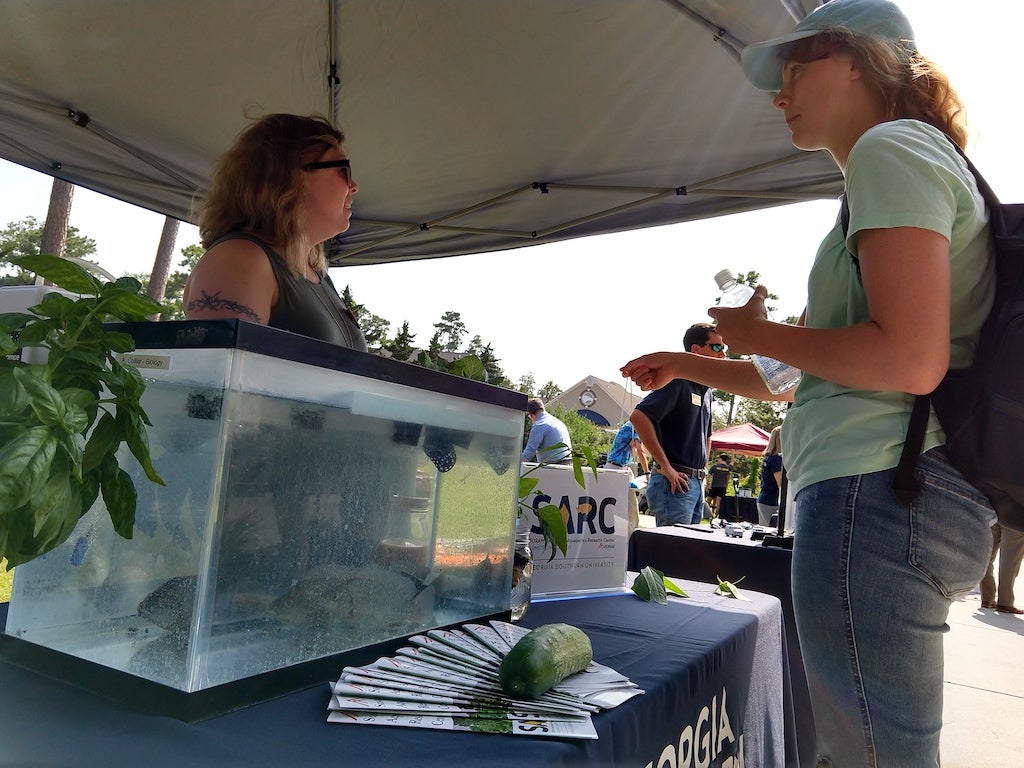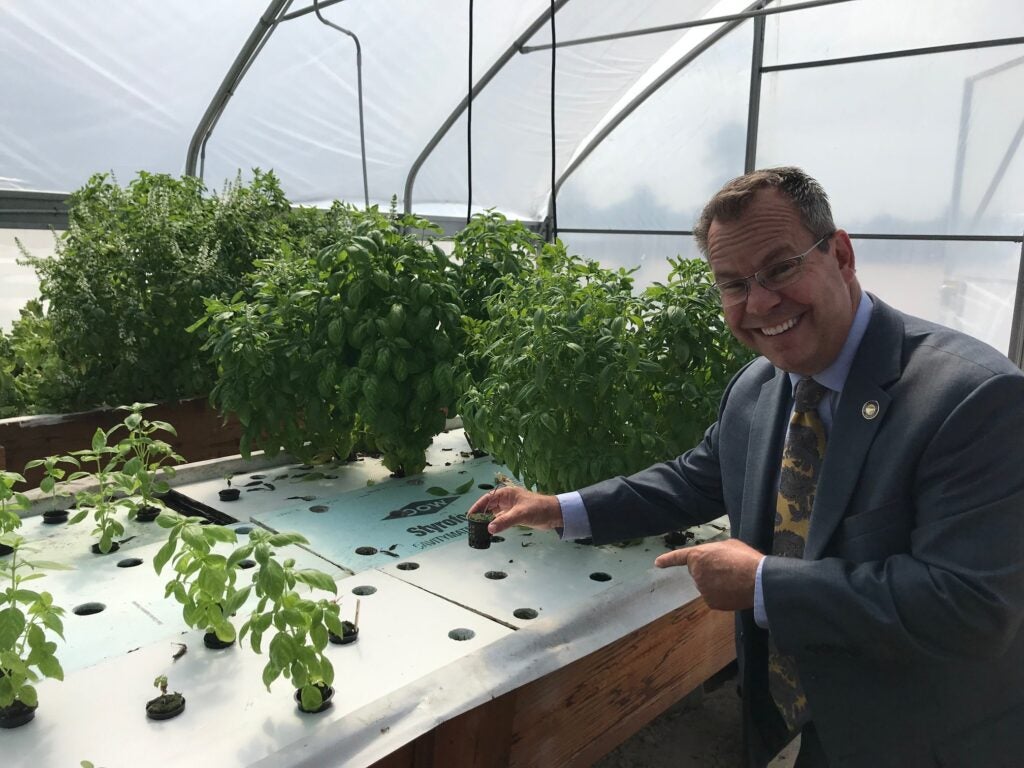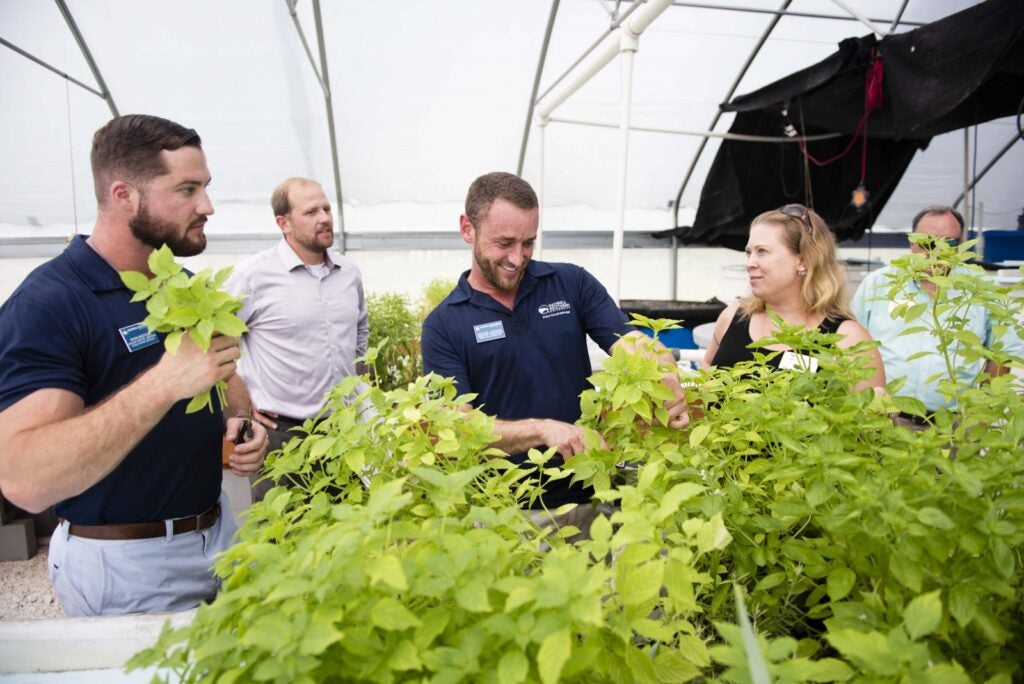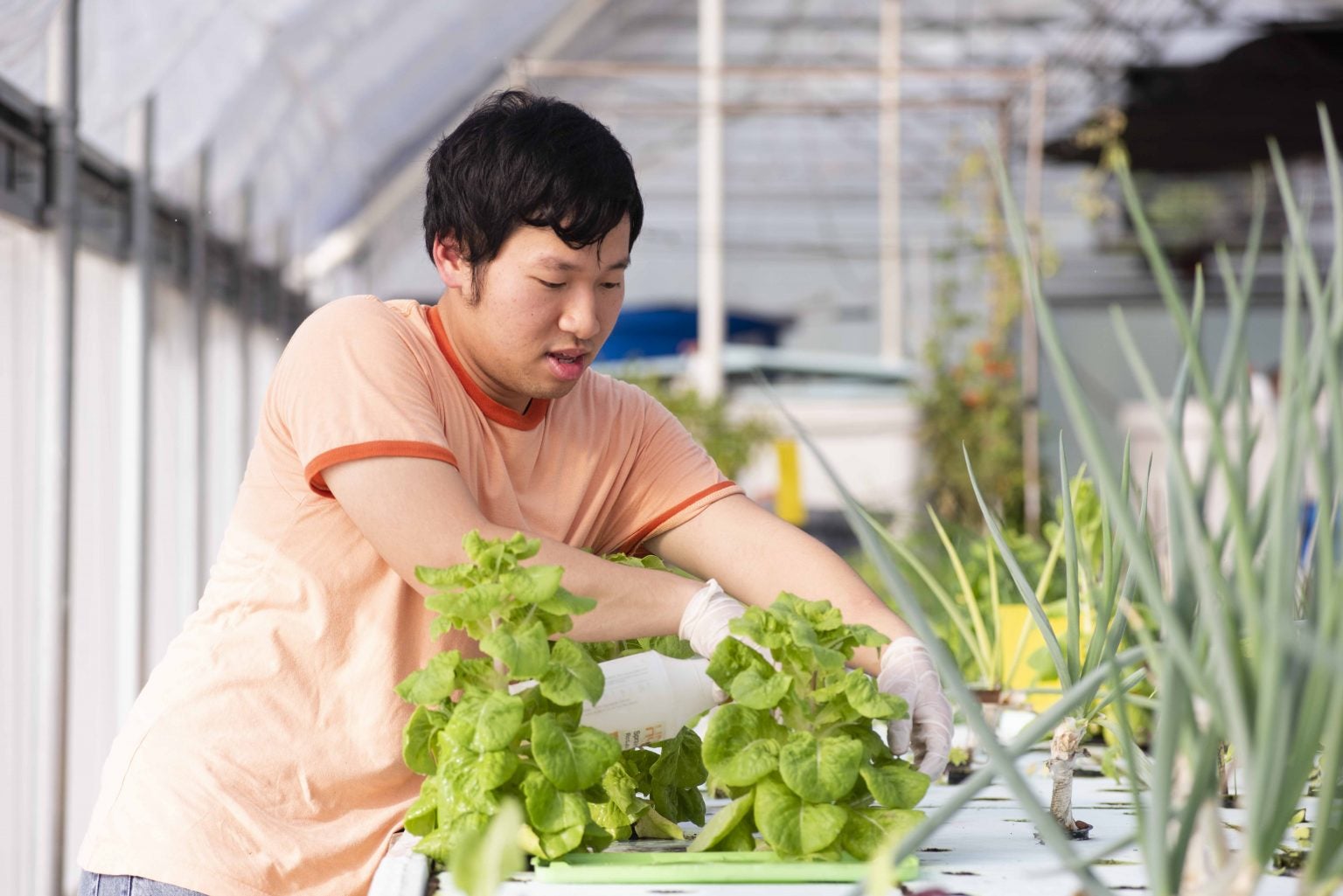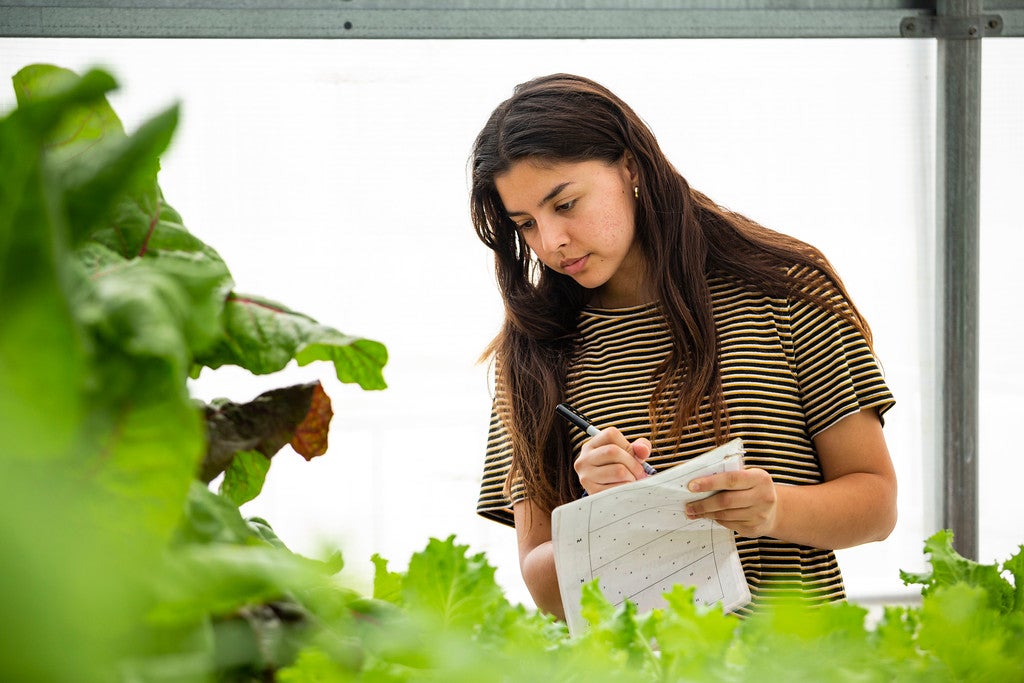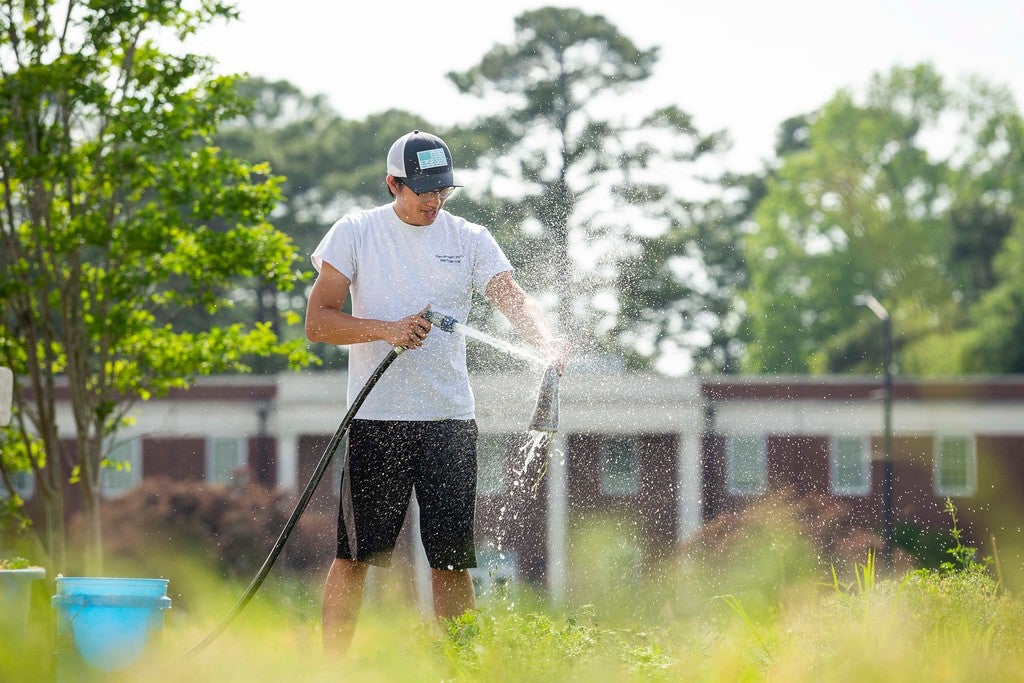Student Opportunities
Volunteers
Do you love gardening, building things, or want to spend some time relaxing in a greenhouse? SARC volunteers learn about how the aquaponics system works, and typically visit 1-2 hrs per week, within designated hours. The curator trains all new volunteers on the tasks that need to be done, which can include: trimming flowers on plants, harvesting & maintaining crops, cleaning rafts, painting, helping with building & repair projects, and many other everyday tasks. Contact the SARC curator for more information on volunteer opportunities.
Internships
Internships are a more structured opportunity for students to work at SARC, either for course credit (1-3 per semester, maximum of 3 new curriculum / 9 old curriculum) or simply for the experience. As a benefit, potential employers and program advisors see the results of your dedication! Scheduling is typically flexible once you are trained on the tasks. In order to work with the aquaculture portion of the system, such as feeding & monitoring the fish, interested interns complete additional training on an as-needed basis. Interns often return to SARC several semesters in a row, or move on to become researchers or employees. Contact the SARC curator for more information on internship opportunities.
Researchers
Research students work directly with a faculty member and the SARC curator to learn about the system and conduct a small-scale research project over the course of one or more semesters. Research students can be paid employees or working for course credit (1-3 per semester, maximum of 6). Depending on the topic of study, research student duties will include a range of tasks at the SARC facility, such as feeding fish, cleaning tanks, monitoring plants, etc. Contact the SARC senior scientist or other faculty members for more information on research opportunities.
Student Jobs
Student employees are often in the greenhouse the most of any of the student workers, typically 8-20 hours per week, depending on their mode of employment. SARC employs both traditional and Federal College Work-Study employees, which learn more extensive skills regarding system care & maintenance, fish handling, troubleshooting, etc. They are often students with previous experience in aquaculture or gardening, or former interns/researchers/volunteers at SARC, and complete additional training. Contact the SARC curator or senior scientist for more information on employment.
Potential Learning Outcomes from SARC Experience
Maintain laboratory and greenhouse systems; employ appropriate techniques to facilitate rigorous scientific experimentation & replication using independent systems; monitoring environmental and water quality parameters; techniques for harvesting produce for sale.
Basic plant care and maintenance for optimal biomass production; planting seeds and transplanting seedlings according to seasonal planting guides; monitoring plants for pathogens, pests, nutritional deficiencies; organically treat plants for pathogens and pests; maintain nutrient supplementation regimes.
Basic fish husbandry and maintenance for healthy, optimal biomass production; adjust and maintain appropriate water quality; monitor fish biological parameters; rearing and enhancing the growth of fish eggs and fry; monitor fish for symptoms of disease and stress; assist with treating fish for disease.
Develop and update marketing materials; Enhance and build marketing of SARC food; Enhance and expand SARC website; Update relevant news and staff information regarding aquaponics and SARC; Expand online presence and visibility via social media and student organizations.

